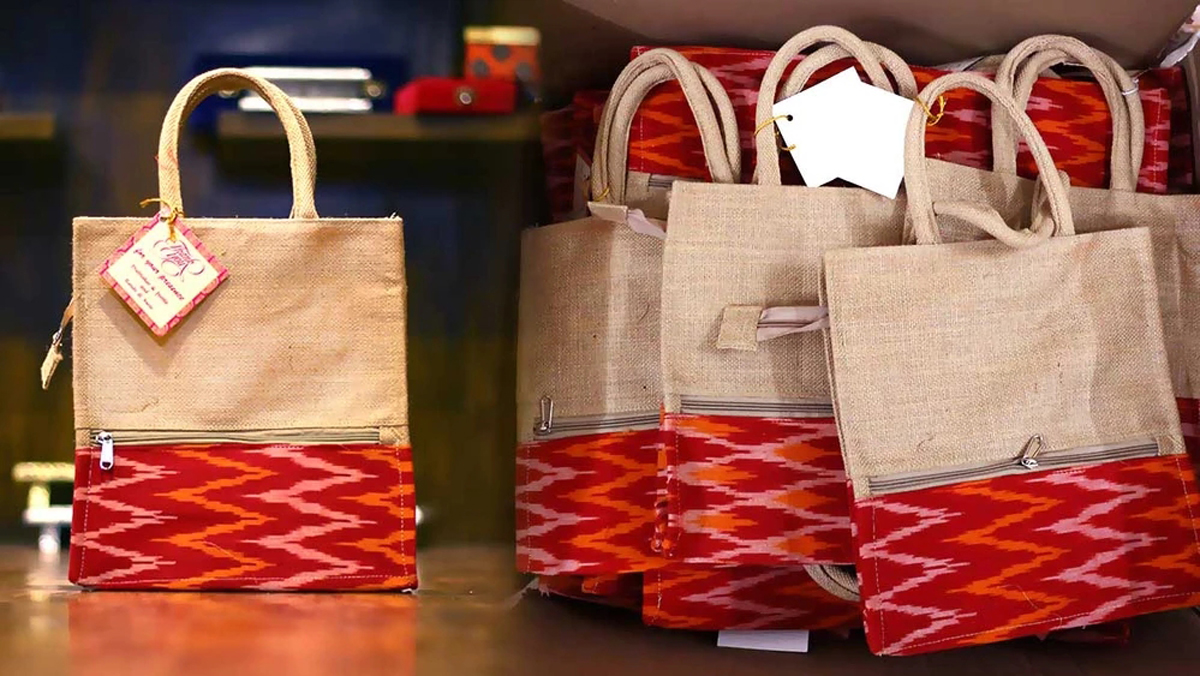Indu Kanwal Chib
Bag it please…… It can fit in..
“I don’t know any other way to carry my stuff madamji”
This was the answer given to me by an old Gujjar when as part of Swachta Hi Sewa 2019 me and Principal District Session Judge Reasi were going from shop to shop to warn them not to use/sell plastic bags and other Single Use Plastic(SUPs) items in their daily business routine. He had bought items more than the capacity of the cloth bag he was carrying but was adamant that it will fit-in.
“Madam ji , it will fit-in” he said. “It sure can” I murmured.
I firmly recollect my school days in Delhi when my mother used to carry a cloth bag for the “Shani market” to buy vegetables. I could see my old frock or an old bedsheet beautifully converted into a shopping bag thereby meaning that these bags were not much sold in the markets and people used to sew them at home. Ironically more the number and designs of these bags available today in the markets the lesser we use them.
We are all prompt to use any type of bag the shops provide us be it polythene ( less or more than 50 mm) or be it polypropylene made non-woven bags which look like cloth but are actually plastic and equally hazardous.
Manufacturers claim that a small amount of plastic is blended with fabric to make these non-woven bags and they are reusable and airy but experts disagree. According to them constituents of the bags are mostly non-biodegradable and should not be used in the long run. (Centre for Science & Environment Delhi)
While working with Swachh Bharat Mission I started an All-Women Self-Help group (SHG) in Bishnah block of Jammu with a local Sarpanch to make cloth bags. In a month or two these ladies were able to produce thousands of basic cloth bags and were also able to market them with the help of Department of Horticulture Planning and Marketing for their use in Narwal wholesale vegetable/fruit market Jammu.
This proves the fact that “Yes sir, it can fit in”.
Rejuvenated a few SHGs in Reasi as well ,let’s see if they work or not. Only cloth bags can replace the polythene or polypropylene bags which causes a plethora of problems like visual pollution and urban flooding as they block waterways and exacerbate natural disasters. By clogging sewers and providing breeding grounds for mosquitoes and pests, plastic bags can increase the transmission of vector-borne diseases like malaria, cholera etc. Plastic bags, have been found blocking the airways and stomachs of stray animals who have become habitual of consuming them .
I witnessed this apathy when we dealt with the stray animal menace recently in Reasi market by housing them in a cattle pound. These animals didn’t eat the fresh green waste from the vegetable market for first few days as they were so used to eat these cancerous polythene bags.
There is an evidence that the toxic chemicals added during the manufacture of plastic transfer to animal tissue, eventually enter human food chain. One can also see poor people burning these polythene bags to beat winters not realising that this burning releases harmful gases like furan and dioxin.
I tried this concept of women SHGs making low cost cloth bags in Reasi and Katra towns but failed till now, even after making a government run sale point in the heart of the town for easy access for their purchase. Reason being that we urbane people don’t have the level of awareness that an old Gujjar living in a village has. We still feel and believe that carrying a cloth bag ruins our style statement. What will people say ? At the cost of our health because food items in these plastic bags invite cancer, and at the cost of complications they cause to the environment we are shamelessly using them. We are not bothered that sewer drains close to our palatial bungalows are clogged , not bothered that cancer is slowly and gradually entering our homes, not even bothered that toxins are in the air due to polythene burning etc etc. What matters to us are our style statements and our comfort.
Having said this, I also strongly believe that cloth bags are the only answer and by involving women SHGs we not only empower them but also place an alternative to polythene or the non woven bags. People are surely taking time to understand but I am still hopeful that our efforts will bear fruit one day…..I only hope that the day comes a little early before the damage can be undone and …
(The author is Deputy Commissioner, Reasi)
Trending Now
E-Paper


